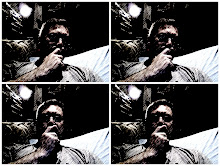 About suffering they were never wrong,
About suffering they were never wrong,The Old Masters: how well they understood
Its human position; how it takes place
While someone else is eating or opening a window or walking duly along...
In Brueghel's Icarus*, for instance: how everything turns away
Quite leisurely from the disaster; the ploughman may
Have heard the splash, the forsaken cry,
But for him it was not an important failure; the sun shone
As it had to on the white legs disappearing into the green
Water; and the expressive delicate ship that must have seen
Something amazing, a boy falling out of the sky,
Had somewhere to get to and sailed calmly on.
W. H. Auden, Musee des Beaux
 * Pieter Brueghel the Elder, Landscape with Fall of Icarus
* Pieter Brueghel the Elder, Landscape with Fall of IcarusThere is an old Flemish proverb that reads, " Es bleibt kein Pflug stehen um eines menschen willen , der stirbt." Which reads in translation, "No plough comes to a standstill because a man dies."
In this poem, as is so often the case, Auden's observation about the human denial of the relevance of another person's suffering or an apathetic response to suffering founding in either the leisurely disdain of an egoist or the marginalizing impact of the ultra impersonal force work of commerce and business - jointly reveal something fundamental and fallen about the human situation. The general indifference of all the observers to the suffering/death of Icarus is comparable to that of the inanimate sun which shines through no choice of its own. The caustic inference that Auden is making is that our denial, apathy, indifference is a forced yet intentional removal of our care from the other - it is our animated choice that reveals our flawed nature.





No comments:
Post a Comment